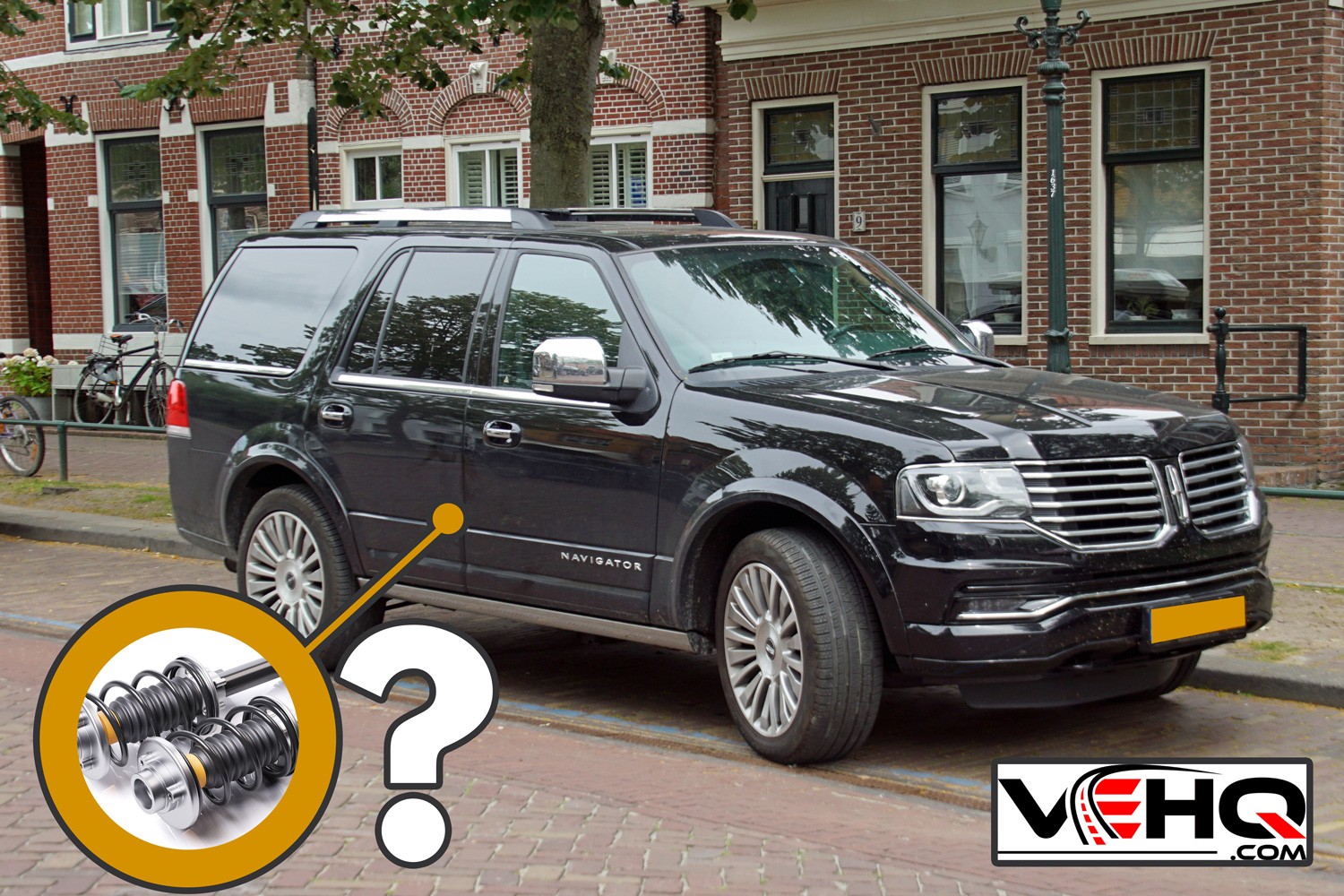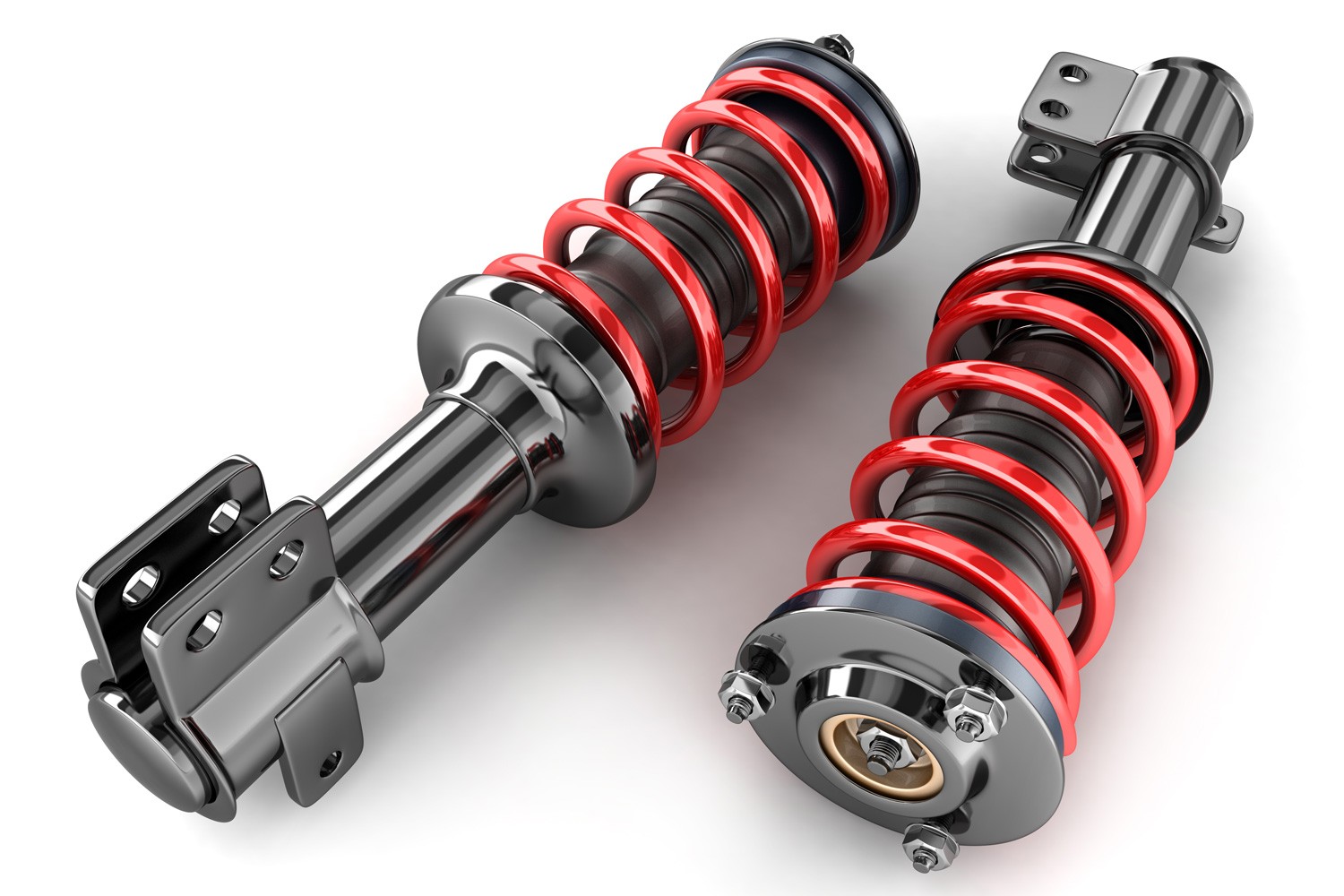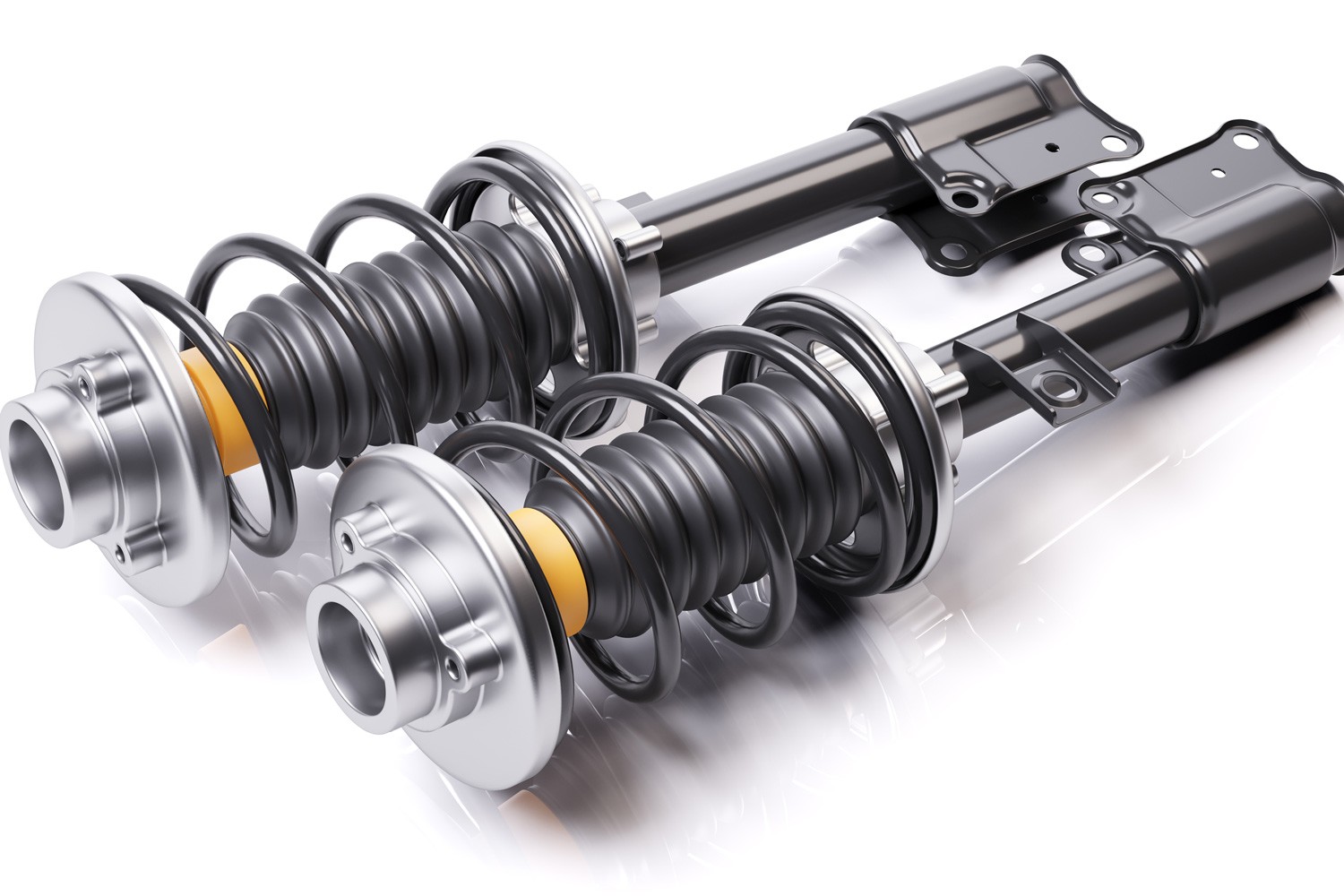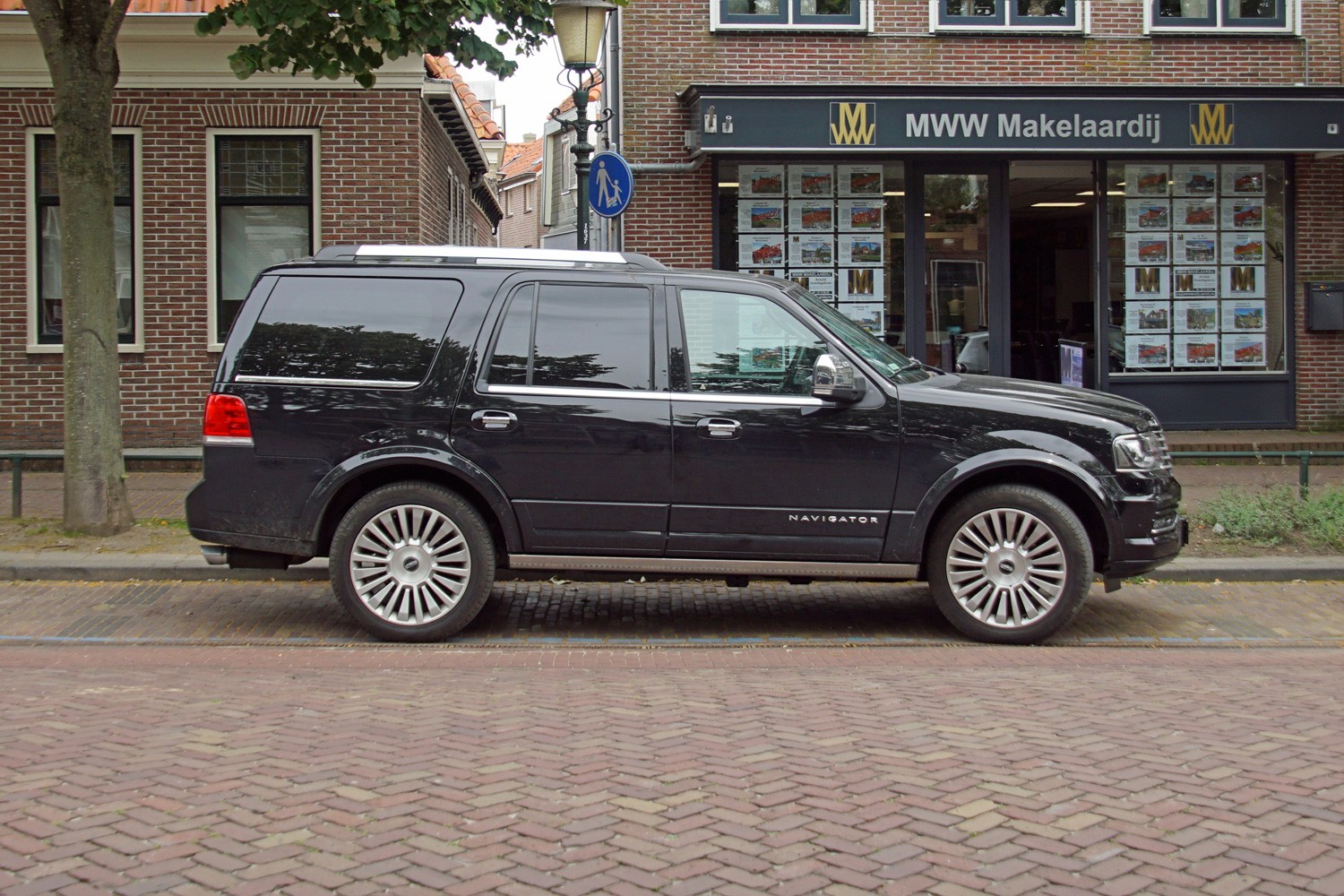Are you wondering if your new Lincoln Navigator has air suspension? Or may you’re planning to buy a Lincoln Navigator, and you want to know if it comes with air suspension? You’ve come to the right place, for we have researched this question, and we have the answer for you.
The Lincoln Navigator uses air suspension. This has been standard since its debut in 1998. The 2WD models have air suspensions for the rear wheels, while the 4WD models have four-corner leveling air suspensions.
In this article, we'll take a closer look at the Navigator's suspension. We'll see the difference between active and adaptive suspension, potential problems with suspension and how to fix them, and more. Read on to learn all about it!

What is Lincoln Navigator’s Adaptive Suspension?

The 2022 Lincoln Navigator features an Adaptive Suspension.
This feature uses software to get information from a front-facing camera. The camera scans the road ahead and looks for road imperfections like bumps. The system uses the information from the camera to determine the size, position, and shape of the road imperfection.
The software will then use this information and make calculations. The software will then adjust the suspension of each wheel in your Lincoln Navigator to better handle the road imperfection.
It may sound like a complex process, but it all happens in a fraction of a second. This means that your Lincoln Navigator will be able to make these adjustments regardless of your speed and the number of road imperfections ahead of you.
What is the difference between an active suspension and an adaptive suspension?
Active suspension is based on the Skyhook Theory. This theory maintains that the ideal suspension should be able to provide a smooth ride that makes it seem like the vehicle is floating over the ground via hooks from the sky.
Active suspensions incorporate the ability to change the height of the vehicle at different corners to adapt to the road surface. This makes the occupants of the vehicle feel nothing from the road imperfections that a vehicle drives over.
Adaptive suspension, on the other hand, is a form of active suspension. An adaptive suspension is also known as a semi-active suspension.
What are the advantages and disadvantages of adaptive suspension?
The biggest advantage of adaptive suspension is providing you with more control over your vehicle. If your vehicle can more easily adapt to road conditions, then it will become easier for you to control your vehicle under any road condition.
Some versions of adaptive suspension provide drivers with different modes of adaptation. This allows you to adapt your vehicle to the type of road and to your style of driving.
If your vehicle can adapt to different road conditions, then your suspension will be able to help protect the components of your vehicle from too much shock and vibration from the road.
On the other hand, the disadvantage of having an adaptive suspension is maintenance cost. An adaptive suspension has a lot of parts compared to a regular coil spring suspension.
Each of the parts that an adaptive suspension uses will require maintenance. It will also need a replacement if any of them breaks down. This makes them expensive to repair.
Why Lincoln Navigator has suspension problems?

The air suspension of Lincoln Navigator is among the most common problems that you might encounter on your Navigator. Let’s take a closer look at what causes these problems in the air suspension.
Rubber Air Springs
The common root cause of air suspension problems in Lincoln Navigator is the rubber air springs.
The rubber air springs of the air suspension start to develop cracks as a result of normal wear and tear. Unfortunately, this can be quite early in some models.
Once the rubber air springs develop deep cracks, the air inside will start to leak out. This will start with small leaks, but it will eventually become a problem as more leaks appear from the cracks in the rubber air springs.
AUTOSAVER88 rear air suspension is available on Amazon through this link.
Air Compressor
Once the leaks become bigger, the sensors on the suspension will sense that the suspension of your Navigator is barely adapting to the road. It will then send a signal to the air compressor to work double-time to produce more air to improve the air suspension’s ability to adapt to the road.
Remember our chapter earlier about adaptive suspension?
The problem is that working double-time will cause the air compressor to fail faster. In most cases, you will hear the air compressor running, but it is barely producing the air that the air suspension needs to perform its task.
Whenever replacing parts, make sure they are compatible with your specific vehicle. Some are compatible for a vehicle only for select model years, like the one below, which is compatible with Lincoln Navigators from 1998-2006.
Click here to see this suspension air compressor replacement on Amazon
Repairing The Air Suspension

Once the air compressor stops working, you will need to replace the rubber air springs and the air compressor. If you have air suspension on all four wheels, then you’d have to replace them all. If you have air suspension on only the two rear wheels, then you need to replace both.
Air compressors also need a compatible air dryer. Thus, you will also need to replace the air dryer to match the new air compressor.
If you do not replace all the rubber air springs and wait for the others to leak, then this will put the same stress on the new air compressor and cause it to fail. The air compressor will produce air nonstop to fill the rubber air springs that will never be filled because of the leaks.
Replacement parts from Lincoln are more expensive than aftermarket parts. Thus, you might want to switch to aftermarket parts when you replace your air compressor, air dryer, and rubber air springs. Aftermarket replacement parts are cheaper.
Additionally, you have the option to switch to a regular coil spring suspension which is cheaper to purchase and maintain. This is something that you might want to consider if you use your Lincoln Navigator mainly for city driving.
Replacement coil spring suspension is also an aftermarket part that includes a conversion kit. You can pick a replacement coil spring suspension that matches the model of your Lincoln Navigator.
Click here to see this air spring to coil spring conversion kit on Amazon
Is the Lincoln Navigator good in snow?
The 4WD Lincoln Navigator is a good vehicle for snowy roads. It is equipped with safety features that make it an ideal and safe vehicle for driving in the snow.
The Lincoln Navigator is equipped with a Pre-Collision Assist feature. This feature scans the road ahead using a mounted radar and a front-facing camera. It looks for anything that your Lincoln Navigator might crash into like other vehicles.
Once the Pre-Collision Assist determines that you are about to collide with any of these objects on the road, it will prepare the vehicle for a sudden stop. If the driver fails to step on the brakes to avoid a collision, the Pre-Collision Assist feature will automatically apply the brakes to stop the vehicle.
New models of the Lincoln Navigator even include “Slippery” in the different selectable drive modes. This will make the Navigator make all the adjustments to the drivetrain and the suspension to become more effective when driving in snow.
The Navigator also has the Head-Up Display feature that allows you to get crucial driving data without moving your eyes away from the road. Select the data that you want to be displayed, and it will be projected right onto the windshield.
Are Lincoln Navigators good for towing?
The Lincoln Navigator has great towing capabilities.
The 2022 Lincoln Navigator Standard and Lincoln Navigator Reserve both have towing capacities of 6,200 pounds. The 2022 Lincoln Navigator Black Label, on the other hand, has a towing capacity of up to 8,300 pounds.
Lincoln Navigators can be bought with the optional Heavy-Duty Trailer Tow Package that includes the Lincoln Co-Pilot360 2.0 technology and the Tiered Cargo Area Management System that helps make towing safer. This package also includes other features that you need to tow more easily and safely.
Do all Lincoln Navigators have a tow package?
Not all Lincoln Navigators have the tow package.
The tow package is an optional add-on that you can purchase when you buy your Lincoln Navigator. It will be installed on your Navigator before it is delivered to you.
What chassis is the Lincoln Navigator built on?

The fourth generation Lincoln Navigator uses the Ford T3 chassis platform. This platform is designed for large trucks.
The Ford T3 platform is used by Ford Expedition, Ford Expedition Max, Navigator, and Navigator L. The thirteenth generation of the Ford F-series F-150 also shares the same chassis design.
This chassis design uses a body-on-frame construction and a four-wheel independent suspension configuration.
Is the Lincoln Navigator a safe car?
The 2021 Lincoln Navigator has an overall safety rating of five stars—the highest rating a vehicle could get from the NHTSA’s safety tests.
The NHTSA is responsible for enforcing vehicle performance and safety standards to reduce deaths and injuries from motor vehicle crashes.
Conclusion
The Lincoln Navigator uses air suspension. It has rear air suspension for RWD models, and it has air suspension on all wheels in 4WD models.
If you enjoyed reading this article, you might find the articles below equally enjoyable to read:



